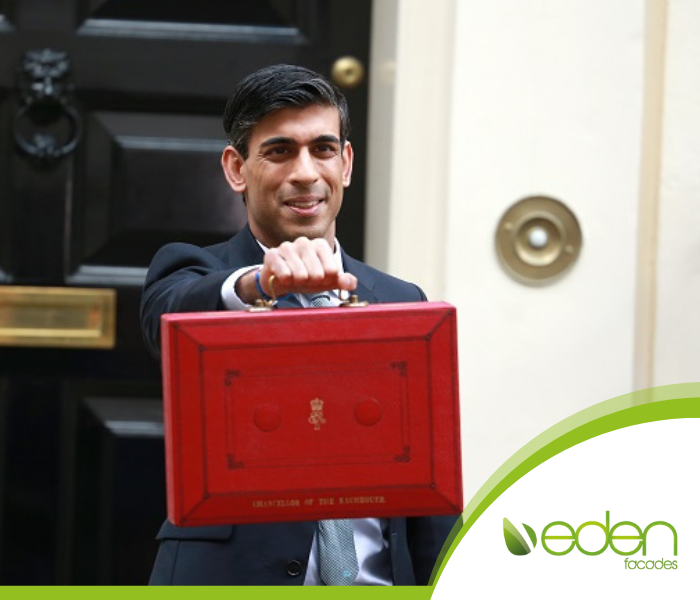Earlier this month, although it feels like longer as the world changes around us daily during this difficult time, Chancellor Rishi Sunak unveiled his first budget in highly unusual circumstances.
Government announce increased budget to replace unsafe cladding
Along with detailing his initial plans for supporting small businesses during the Coronavirus outbreak, Mr Sunak brought some welcome news to homeowners and the construction industry.
Mr Sunak’s announcement included a commitment for a new building safety fund worth £1bn, to be made available to remove all dangerous cladding from buildings over eighteen metres tall:
“Expert advice is clear that new public funding must concentrate on removing unsafe materials from high-rise residential buildings. So today I am creating a new Building Safety Fund worth £1bn.
“That’s what the experts have called for, that’s what the select committee has called for, that’s even what the opposition has called for. That new fund will go beyond dealing with ACM to make sure that all unsafe combustible cladding will be removed from every private and social residential building above 18m.” Chancellor Rishi Sunak
The Government previously pledged £800 million in 2018 to support the removal of Aluminium Composite Material (ACM), the cladding used in the Grenfell Tower tragedy, from social housing.
At the time of the tragedy in June 2017, up to 450 buildings were clad in ACM. Since then, 127 towers have had cladding removed, but the rest remain clad in the combustible material. Last year this budget was increased by an additional £200 million and extended to include the private sector.
This new fund, which will be welcomed by many who live in affected housing, will be used to replace ACM as well as all other unsafe, combustible cladding. This could include high pressure laminate (HPL) cladding, and wood. The Government has indicated that any building owner that has already committed to remove and replace ACM will be expected to honour their commitment without applying to the fund, in order to prioritise the needs of those who would not have otherwise been in a position to afford the works.
We wholeheartedly applaud this investment but are reminded of the situation that faced the industry ten years ago, when the government made grants available to property owners for adding insulated render to their properties, designed to reduce carbon emissions.
The scheme, initially known as ‘The Warm Front’, was introduced to help make homes more energy efficient and reduce heating bills. To be eligible under the scheme, properties had to be poorly insulated and/or not have a working central heating system. At their peak, eligible households were entitled to grants of up to £3,500.
Although millions of homes[1] benefited from the scheme, it eventually came under scrutiny, with thousands of complaints about it being poorly managed, wasting taxpayers’ money, and, crucially for our industry, some contractors were accused of charging significantly higher prices than other local tradesmen for very poor standards of work.
In the case of the new building safety fund, we must tread carefully to ensure that history does not repeat itself. Our concern is that although we may see a rise in the number of contractors ready to take on re-cladding work, they may not be adequately experienced or qualified to install it.
Without the appropriate knowledge, any new materials being used to replace cladding could potentially be no better than what was already in place, compromising safety. We wait for further guidance from the Government on how this will work in practice, as well as what evidence will be required and accepted as proof of unsafe cladding and its safe replacement.
It’s not yet clear how quickly funds will be made available, how building owners will apply to the scheme, or how people living in buildings below eighteeen metres tall that feature unsafe or untested materials, but don’t quality for funding, will need to go about testing and removing the cladding.
Whilst there are still more questions to be answered, there is no doubt that this was a positive development and the fact that the Chancellor included this in his Budget was welcomed across the board.
Perhaps the prospect of being able to help people living in buildings affected by unsafe cladding feel safe in their homes again, will help us during the uncertainty of the coming weeks and months ahead.
If you would like to talk about our approach or discuss any of the above, please get in touch on 01268 744199 or office@edenfacades.co.uk
[1] https://commonslibrary.parliament.uk/research-briefings/sn06231/

